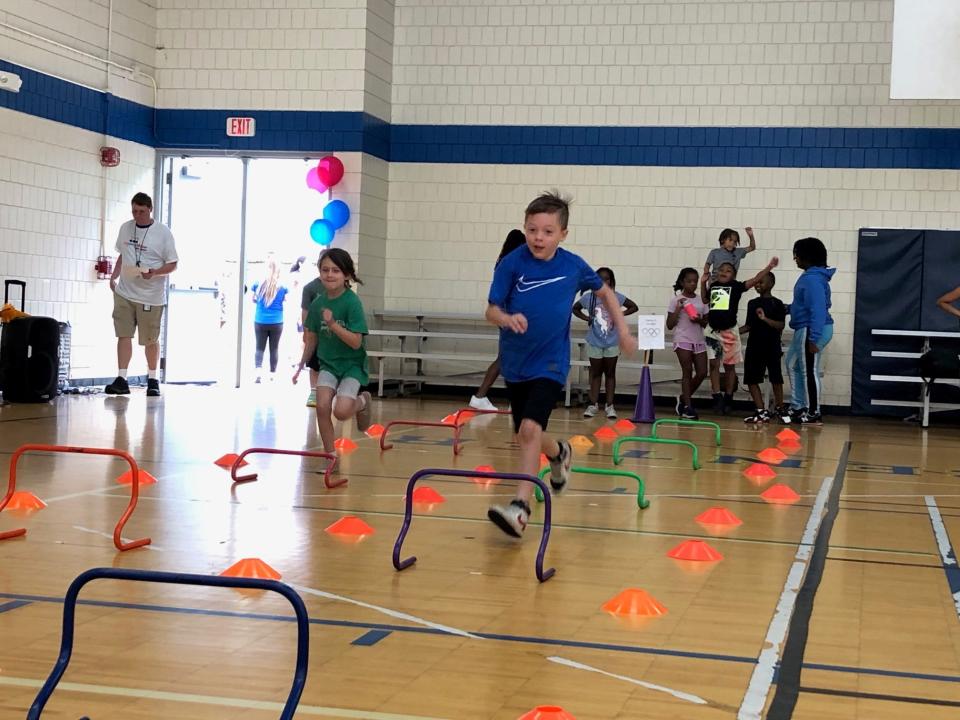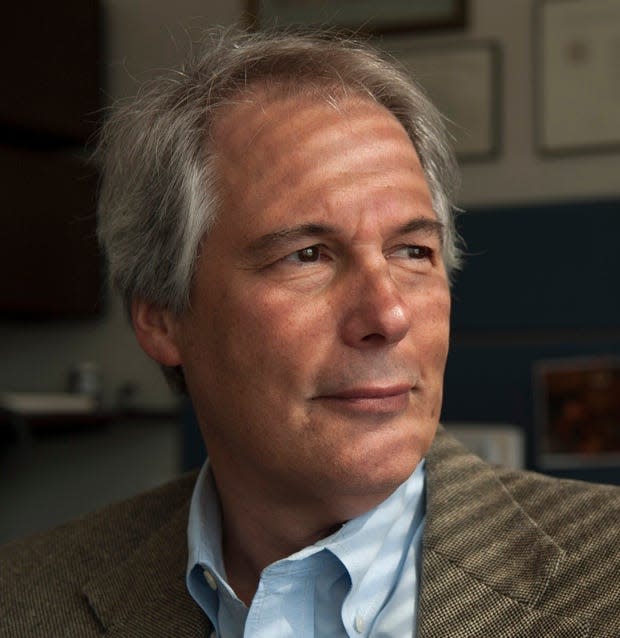Cincinnati Children's expands its trauma-informed care training to city's rec center staff
Cincinnati recreation staff, whose programs for kids drew 214,501 visits last year across 23 recreation centers, will be trained to recognize and interact with children who've endured trauma.
The city last week entered into a contract with the Mayerson Center for Safe and Healthy Children, a Cincinnati Children's clinic for kids who've been abused, so that rec center workers can learn trauma-informed care strategies.
The Mayerson Center's partnership with the city is just its latest effort to share the knowledge with the community.

It's been a decade since Dr. Robert Shapiro, director of the Mayerson Center, has led Joining Forces for Children, a collective of educators and health care providers, social services agencies and other community members with a mission to prevent childhood trauma and care properly for kids who've experienced it. Trauma is the lasting cognitive and emotional reactions people have to distressing events – such as losing a parent or experiencing domestic violence.
“We’re not done,” said Shapiro, who is also executive director of the collective. He said he got word Wednesday of the city's decision to partner with the Mayerson Center for the training.
"We are confident that this initiative will equip our team with valuable tools to enhance our ability to support children and families in Cincinnati," Cincinnati Recreation Commission Director Daniel Betts said Thursday in a news release.
Learning how to work with trauma-affected kids is crucial, state policy group says
Such efforts need to be a priority throughout Ohio, according to the Health Policy Institute of Ohio. The policy group this month released a new briefing on strategies to prevent traumatizing childhood experiences in Ohio, and the need for trauma-informed care of kids was among them.
“More than two-thirds of Ohio adults report exposure to at least one adverse childhood experience," said Becky Carroll, the Health Policy Institute of Ohio's author of the report. The phrase is used to define the experiences – growing up with abuse or being neglected, having a parent with a substance use disorder or mental health condition that's not managed – that can trigger trauma. Research shows that, if left unaddressed, these experiences can lead to poor health and other struggles and negative experiences through adulthood.
Cincinnati Children's leads local efforts in preventing, addressing childhood trauma
Shapiro and his Mayerson Center team are specialists in trauma care. They interview, assess and treat children who have experienced abuse and neglect. Some kids come to the center from Hamilton County Children’s Services, some are referred by other medical providers, and some children come to the center with family or guardians.
A safe space: Trinity the dog helps children tell their stories about sexual abuse
Cincinnati Children's also has shared its knowledge of trauma care through online education, Shapiro said. The training has been available in English since 2021 and in 2023, launched in Spanish and Czech translations.
Shapiro said work with the city and with Cincinnati schools will continue.

Traumatic events cannot predict a child's future, Mayerson Center director says
Shapiro said that while screening to learn if a child has experienced trauma can be an important tool for care providers and families, it doesn't mean that kids who've endured trauma will inevitably have troubled lives.
“Screening does not predict their own future,” he said. “It doesn’t look at positive childhood experiences. It doesn’t measure resilience.”
It is the community’s job, Shapiro said, to help kids who’ve experienced trauma have positive lifelong outcomes.
This article originally appeared on Cincinnati Enquirer: Cincinnati Children's brings trauma informed care to city providers

